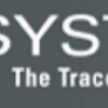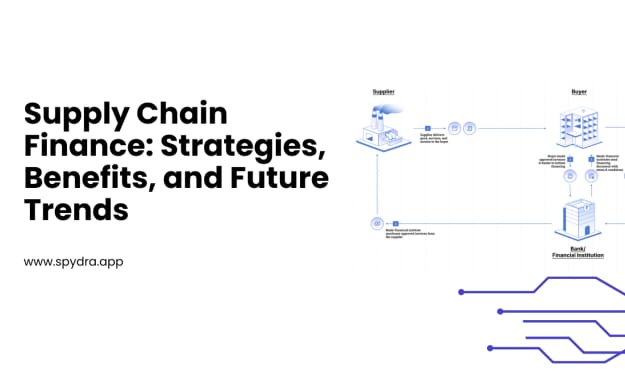Transforming Laboratories- The Role of Laboratory Information Management Systems
The Best Laboratory Information Management System Software Provide bye SG Systems Global

In the rapidly evolving landscape of scientific research and analysis, laboratories face the challenge of managing vast amounts of data efficiently and accurately. A Laboratory Information Management System (LIMS) emerges as a comprehensive and transformative solution, streamlining laboratory workflows, ensuring data integrity, and elevating research productivity. This article explores the key features and benefits of LIMS, shedding light on its crucial role in modern laboratories.
The Need for Efficient Data Management
In laboratories, data management is pivotal to success. Laboratories generate an array of data, including experimental results, sample information, instrument readings, and protocols. Handling this data manually can lead to errors, delays, and inefficiencies. Moreover, compliance with industry regulations and quality standards necessitates precise documentation and traceability, making data management a daunting task.
What are the different types of laboratory information management systems?
Laboratory Information Management Systems (LIMS) can be categorized into different types based on their functionality, target industries, and specific features. Below are some of the common types of LIMS:
1. General LIMS: These are comprehensive LIMS solutions designed to cater to a wide range of laboratories across various industries, including pharmaceuticals, biotechnology, environmental, forensic, and academic research labs. General LIMS typically offer a broad set of features to manage samples, experiments, workflows, data, and compliance requirements.
2. Clinical LIMS: These LIMS are specialized for clinical laboratories and healthcare settings. They focus on managing patient sample data, patient demographics, and clinical test results, while also ensuring adherence to regulatory requirements such as HIPAA (Health Insurance Portability and Accountability Act).
3. Pharmaceutical LIMS: Pharmaceutical LIMS are tailored for drug development and manufacturing laboratories. They emphasize managing complex workflows, traceability of raw materials and formulations, batch management, and compliance with Good Manufacturing Practices (GMP) and other regulatory standards.
4. Environmental LIMS: These LIMS are designed for environmental testing and monitoring laboratories. They handle sample tracking, data management for water, air, and soil analysis, and compliance with environmental regulations.
5. Food and Beverage LIMS: This type of LIMS is specialized for quality control and testing laboratories in the food and beverage industry. It manages sample testing for food safety, nutrition, and quality, ensuring compliance with food safety standards and regulations.
6. Forensic LIMS: Forensic laboratories utilize this type of LIMS to manage evidence and track chain of custody. Forensic LIMS assists in managing and analyzing forensic samples, maintaining strict data security, and ensuring accurate and tamper-proof documentation.
7. Research LIMS: Research-focused LIMS are tailored for academic, government, and private research laboratories. They support various scientific disciplines and allow researchers to organize and collaborate on experiments, data analysis, and research outcomes.
8. Industrial LIMS: Industrial laboratories, such as those in manufacturing or petrochemical sectors, use this type of LIMS. Industrial LIMS may include features for quality control, equipment calibration, and compliance with industry-specific regulations.
9. Veterinary LIMS: These LIMS are designed for veterinary diagnostic laboratories. They help manage animal patient data, sample analysis, and track test results for various diagnostic procedures.
It's essential for laboratories to choose the most suitable LIMS that aligns with their specific needs and industry requirements. Some LIMS may offer customization options to tailor the system to the unique workflows and processes of a particular laboratory.
The Advantages of Laboratory Information Management Systems
1. Streamlined Workflows: LIMS simplifies and automates various laboratory processes, such as sample tracking, data entry, and result recording. This streamlining reduces human error, minimizes repetitive tasks, and accelerates data processing, leading to improved overall efficiency.
2. Data Integrity and Security: LIMS ensures data integrity by eliminating duplicate entries and maintaining a clear audit trail of changes. With role-based access controls, laboratories can restrict data access to authorized personnel, enhancing data security and confidentiality.
3. Increased Productivity: By automating routine tasks and providing real-time data access, LIMS allows scientists and researchers to focus more on analysis and decision-making. This boosts productivity and accelerates the pace of research and development.
4. Enhanced Collaboration: LIMS facilitates seamless collaboration among team members, departments, and even across different laboratories. Researchers can access and share data, protocols, and results easily, fostering innovation and knowledge exchange.
5. Regulatory Compliance: LIMS ensures compliance with various industry regulations and standards, such as ISO 17025, GLP, and GMP. The system maintains comprehensive documentation, making audits and reporting smoother and more accurate.
6. Data Analytics and Reporting: LIMS provides advanced data analysis tools, enabling scientists to visualize trends, generate reports, and draw meaningful insights from their data. This analytical capability enhances decision-making and supports data-driven research.
Conclusion
The Laboratory Information Management System (LIMS) has emerged as an indispensable tool for modern laboratories, addressing the challenges of data management, compliance, and research efficiency. By automating workflows, ensuring data integrity, and fostering collaboration, LIMS empowers scientists and researchers to focus on innovation and accelerate scientific breakthroughs.
As laboratories continue to push the boundaries of knowledge, adopting LIMS becomes a crucial step toward staying competitive and maintaining excellence in research and analysis. Embracing this transformative technology, laboratories can optimize their operations, elevate data accuracy, and make significant strides in advancing scientific discoveries across various fields.
About the Creator
SG Systems Global
SG Systems Global creates software solutions to make industrial batching more profitable and compliance audits more reliable. Our CEO & leadership team has been involved in the industry since 1998. More Details visit at sgsystemsglobal.com
Enjoyed the story? Support the Creator.
Subscribe for free to receive all their stories in your feed. You could also pledge your support or give them a one-off tip, letting them know you appreciate their work.






Comments
There are no comments for this story
Be the first to respond and start the conversation.